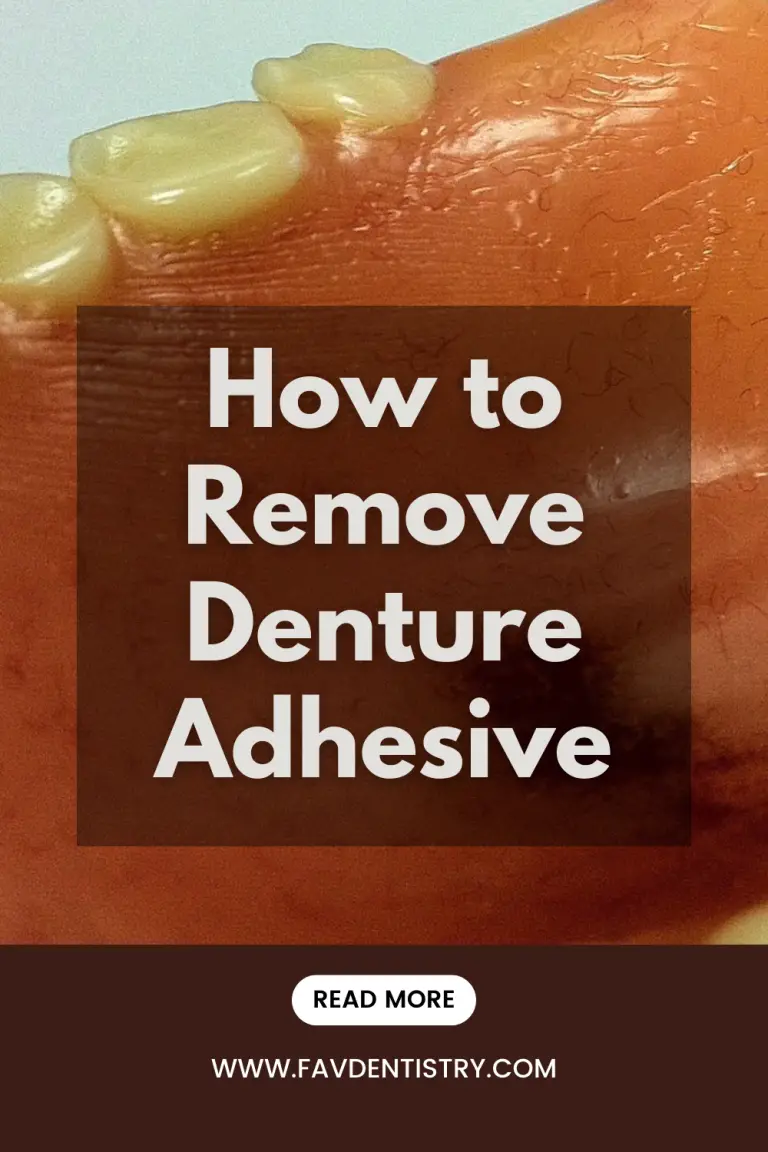How Long Do Dentures Last?
Last Updated on 6 months by DR. ALBIN SIPES
Dentures are designed to last many years, but with proper care and regular checkups, they can last even longer. The average lifespan of a denture is about seven to ten years. However, some people have had their dentures for decades.
If you follow some regulations, you can extend your denture’s life.
Dentures are made to look and function like natural teeth and can be made from a variety of materials, including porcelain, acrylic, or metal. Dentures usually last between 5 and 10 years before they need to be replaced, though this can vary depending on the individual’s oral health and how well they take care of their dentures.
How Long Do Permanent Dentures Last?
Most people with dentures will have to get them replaced every 5 to 7 years. However, you can follow these tips to make your dentures long last. Here are a few tips:
1. Avoid eating hard or sticky foods.
2. Twice a day, brush your denture.
3. Rinse your dentures after eating.
4. Soak your dentures in a mild cleaning solution overnight.
Can I leave my dentures all the time?
Leaving your dentures in all the time can have a few different effects. The first is that it can lead to an increase in plaque and tartar buildup on the teeth. This can eventually lead to gum disease and tooth decay.
Additionally, leaving your dentures in all the time can cause them to become loose and uncomfortable. Over time, this can cause the gums and bones underneath the dentures to shrink, which can make it difficult or impossible to wear them comfortably again. Finally, leaving your dentures in constantly can also lead to bad breath due to bacteria buildup.
Do Denture Teeth Wear Down?
Dentures can be a great way to restore your smile, but it’s essential to know that they require some special care. One question that often comes up about dentures is whether the teeth will wear down over time.
The simple answer is yes. Denture teeth can wear down over time. However, you can still replace your dentures every few years. With proper care and cleaning, your dentures can last for many years before needing to be replaced.
That said, there are a few things that can cause your denture teeth to wear down more quickly. First, if you chew hard foods or bite your nails, you may cause the teeth to chip or break. Second, if you don’t clean your dentures regularly, plaque and tartar can build up on the teeth and cause them to become dulled or stained.
Finally, if you use harsh toothpaste or cleaners when cleaning your dentures, this can also lead to premature wear and tear. It’s essential to take good care of them To prevent these issues from causing too much damage to your denture teeth. Be sure to brush them daily with a soft-bristled brush and mild soap or cleanser specifically designed for cleaning dentures.
You should also avoid chewing hard foods and biting your nails, as well as using harsh cleaners when washing your Dentures. Lastly, have regular checkups with your dentist so they can assess the condition of your Dentures and perform any necessary repairs.
What is the Average Age for Dentures?
The average age for dentures is around 65. It’s because, by this age, most people have lost all of their natural teeth. Dentists advised dentures for maximum cases of patients. Dentures are also applicable to financially weak patients.
Dentures are typically made out of plastic or porcelain and can be easily removed and put back in place.
HOW MANY YEARS WILL DENTURES LAST
In A Day, How Many Hours Can I Wear My Dentures?
If you wear dentures, you may be wondering how many hours a day you should be wearing them. The answer to this question depends on a few factors, including the type of dentures you have and your overall oral health. If you have full dentures, it is generally recommended that you wear them during waking hours and take them out at night before going to bed.
This gives your gums and mouth a chance to rest from the constant pressure of the dentures. It also allows your saliva to flow more freely, which helps keep your mouth healthy. If you have partial dentures, you may be able to leave them in for longer periods, but it is still essential to take them out nightly.
As with complete dentures, taking partial dentures out at night will give your mouth a chance to recover from the day’s wear and tear. It is also important to note that wearing dentures all day long can cause some discomfort. If you find that your dentures are causing pain or irritation, try removing them for an hour or two each day until your mouth adjusts.
Consider consulting with your dentist about ways to make wearing Dentured easier on your mouth.
How Often Should Dentures Be Replaced?
If you wear dentures, you might be wondering how often you need to replace them. After all, dentures are a significant investment, so you want to make sure you get the most use out of them possible. The good news is that with proper care, your dentures can last for many years.
However, there are a few factors that can impact how long your dentures will last. These include
• The quality of the materials used to make your dentures. Higher-quality materials will usually last longer than lower-quality ones.
• How well you take care of your dentures. Proper cleaning and storage will help extend their life.
• How much wear and tear they experience. If you use your dentures regularly, they may not last as long as if they were only used occasionally. Generally speaking, most people should expect to replace their dentures every 5-7 years.
Of course, this is just an estimate, and some people may need to replace theirs more or less often, depending on the factors mentioned above.
Why Do Dentures Shorten Your Life?
When you lose your teeth, you’re not just losing your smile. You’re also losing a vital part of your body that helps keep you healthy and alive.
They also help support your jawbone and keep your airway open. When you lose teeth, your jawbone begins to shrink, and your airway starts to close. It can help to lead some mouth problems, including:
• Difficulty eating – You need strong teeth to chew food properly. Without them, you may not be able to eat the foods you need to stay healthy.
• Difficulty speaking – Your teeth play a role in how you form words. Losing them can make it easier to speak clearly.
• Respiratory problems– If your airway closes off completely, it can be deadly. Dentures can help prevent this by keeping your airway open.
Average Age for Wearing Dentures
The average age for wearing dentures is around 65 years old. However, this number is only an estimate since many factors can affect when someone might need to start wearing dentures. For example, if someone has poor oral hygiene or experiences a lot of tooth decay, they may need to start wearing dentures at an earlier age.
On the other hand, if someone takes good care of their teeth and doesn’t have any significant dental problems, they may not need to start wearing dentures until later in life. There are two main types of dentures: complete dentures and partial dentures. Full dentures are used when all of the natural teeth have been lost and need to be replaced.
Partial dentures are used when some natural teeth remain and only a few need to be replaced. Dentures can be made from different materials, such as plastic or porcelain, and they come in a variety of sizes and shapes to fit each individual’s mouth. Wearing Dentures takes some getting used To.
It is common for people to experience some soreness in their gums and jaws when they first start using them. It is vital To follow The instructions given by The Dentist on How To take care Of The Dentures And how often They should be worn. With Time, People get used To Them And They feel more Comfortable.
How Long Do Dentures Take to Make
Dentures are a type of false teeth that are usually made from acrylic and fit over the gums. They are used to replace missing teeth and can help improve the appearance of your smile. Dentures can also help with chewing and speaking.
The process of making dentures usually takes about two weeks. First, impressions of your mouth are taken in order to create a model of your teeth. Then, the model is used to create a wax prototype of your denture.
This prototype is then used to make an acrylic resin denture, which is then fitted to your mouth. The entire process can take some time, but it’s important to remember that each person’s mouth is different, and therefore, each denture will be unique. If you have any questions or concerns about getting dentures, be sure to talk to your dentist so they can help you through the process.
Do Dentures Wear Out
As we age, our teeth inevitably begin to wear down. This natural process, combined with poor dental hygiene, can lead to tooth loss. When this happens, dentures are often the best solution to restore your smile.
But what many people need to realize is that dentures only last for a while. They will eventually need to be replaced as they wear out. The average lifespan of a set of dentures is about 5-7 years.
But this can vary depending on how well they’re cared for and how often they’re worn. If you take good care of your dentures and only wear them when necessary, you can extend their life by a few years. Eventually, however, you will need to replace them as they become loose-fitting and uncomfortable.
The good news is that advances in dental technology have made today’s dentures much more comfortable and realistic looking than ever before. So even though they may not last a lifetime, you can still enjoy many years of use from your new set of Dentures.
Conclusion
Dentures are designed to last a long time, but they will eventually need to be replaced. The average lifespan of a denture is about 5-7 years. However, this can vary depending on how well you take care of them and how often you wear them.
If you take good care of your dentures and only wear them when necessary, they could last much longer.


